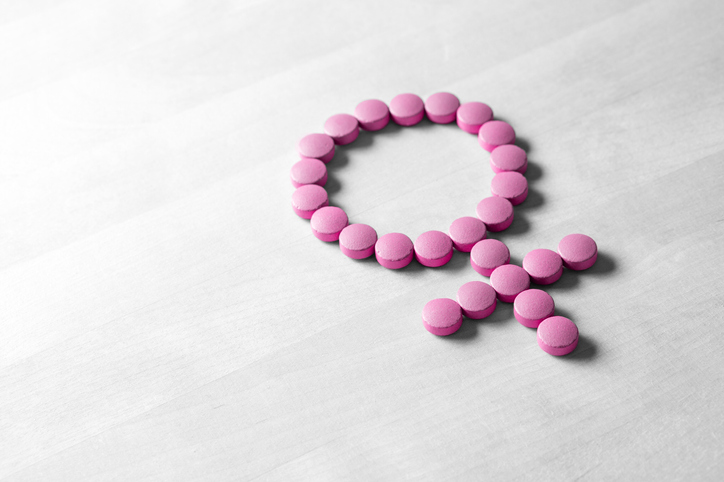Birth Control and Menopause – What You Need to Know
Not sure if you still need birth control, or how it can affect other hormone products?

There is no set ‘oldest age’ when you can get pregnant naturally, but fertility starts to decline as you age.
When you’re in perimenopause you may be unsure if you still need to use birth control to avoid pregnancy but don’t stop your birth control until you are absolutely sure you no longer need it.
Your contraception choices
There are many birth control options to choose from if you’re near menopause, and that includes both hormonal or non-hormonal choices:
- Birth control pills
- Hormonal injection
- Skin patch
- Vaginal ring
- IUDs, hormonal such as Mirena or non hormonal like the copper coil
- Sterilisation
- Barrier methods such as condoms, diaphragms, or sponges
PLEASE NOTE: The rhythm method, also called natural family planning, is when you track your menstrual pattern to know when you’re most likely to get pregnant.
BUT at perimenopause it is not as effective as other birth control methods.
When you’re in perimenopause, you’ll have irregular periods that make it hard to track your menstrual cycle so when you can’t tell when your next period will come, the rhythm method won’t help you avoid pregnancy.
Pros and cons
Although women at perimenopause are prescribed the pill or coil to try to help heavy bleeding, if your contraception is for birth control it does have some downsides.
Hormonal birth control has synthetic progestins which may cause you to have a higher risk of blood clots, heart attacks, strokes, and breast cancer.
Hormonal methods may not be safe options for you if you smoke or if your doctor has diagnosed you with:
- Cancer
- Heart disease
- High blood pressure
- Diabetes
- Blood clots
If contraception is still essential for you, then you could discuss with your doctor whether a non hormonal coil, such as the copper one, might be a better option for you.
Because it does not contain any hormones it is safer and with less risk of side effects and can be used alongside bioidentical hormones to help with other perimenopausal symptoms – unlike the other hormonal methods of contraception.
Menopause when you’re on birth control
You’ve most likely gone through menopause if you’re over 50 years old and haven’t had a period in more than 1 year, or if you’re under 50 years old and haven’t had a period in more than 2 years.
But you may not be able to tell if you’ve reached menopause if you’re still on birth control.
Hormonal birth control may hide some of the symptoms of menopause, such as an abnormal period, hot flushes, or night sweats.
If you take combination pills (pills that have oestrogen and progestin) even after menopause, you may continue to bleed similarly to how you would on your period.
This can make it hard to tell if you’ve gone through menopause and whether you’re still able to get pregnant.
When to stop your birth control
In most cases, you should stop the combined pill when you’re at the age of 50. Women in this age group may have other health issues that could make it dangerous to use. Talk to your doctor to see if it’s safe for you to use it if you’re 50 or older.
If you don’t want to be on the combined pill any more but still want protection against pregnancy, you can use other forms of birth control, like condoms or the copper coil.
If you’re over the age of 55, you can probably stop hormonal methods since your chances of pregnancy are very low. But to be safe, don’t stop any type of birth control until you haven’t had a period for a full year.
Helpful information:
Not all women who are on birth control at perimenopause are doing so because they need contraception, but because they are looking for help with other symptoms such as very heavy bleeding.
For that and other perimenopausal symptoms supplementing with bioidentical progesterone can be very helpful.
However, if you are on hormonal contraception then the following article will explain the reasons why it is not a good idea.
Can You Use Bioidentical Progesterone With The Coil/Pill/IUD/Implants?


















